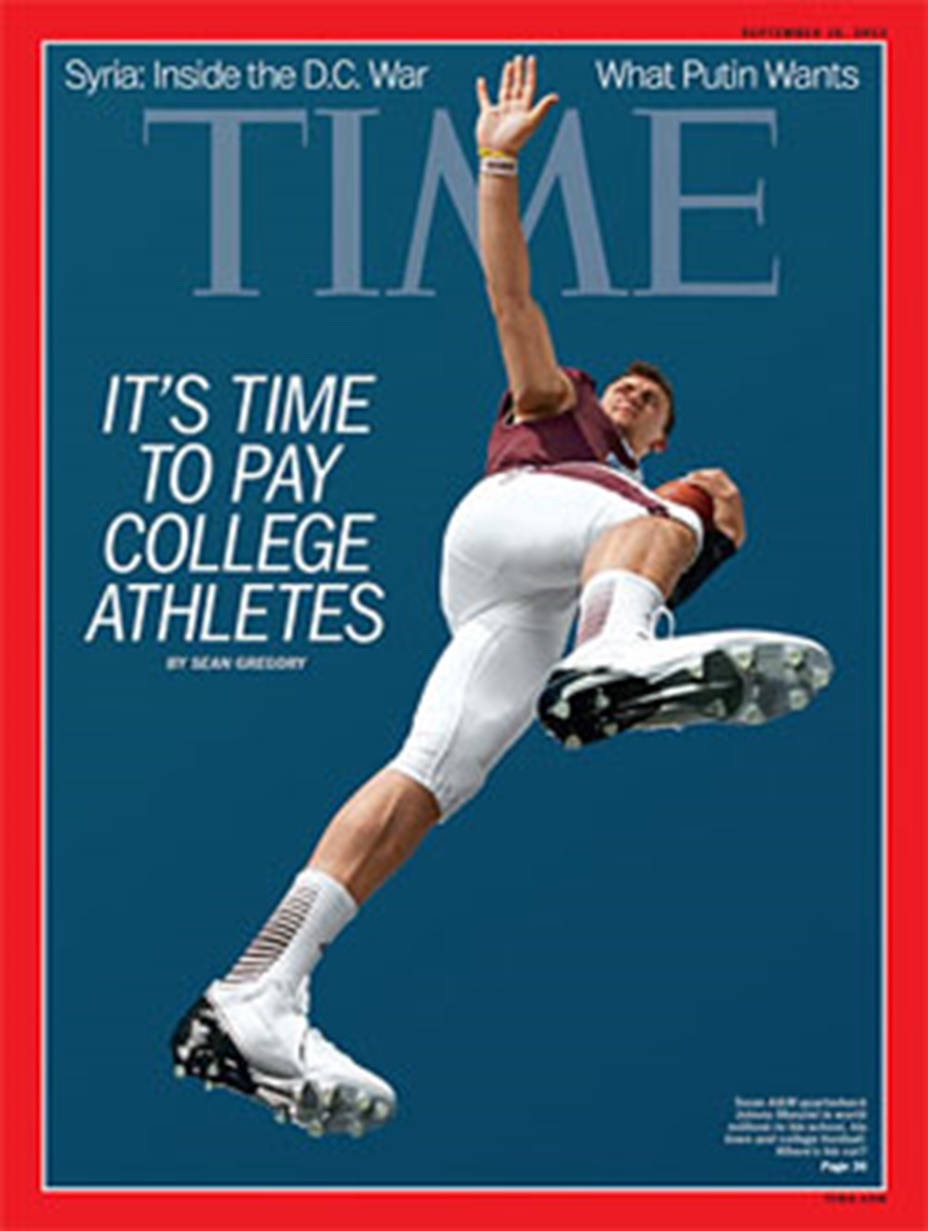The allegations surrounding Texas A&M QB Johnny Manziel prior to the start of the college football season "teed up a debate that has been simmering for decades but is now more intense than ever," according to a cover story by Sean Gregory of TIME. Gregory asks, "Why shouldn't a player worth so much to his school, to his town and to the college-football brand be able to sign his name for money?" How much longer "can everyone else make money from college athletes like Manziel while the athletes themselves see their cash compensation capped -- at $0?" The players "with the talent remain out of the money simply because a group of college presidents, athletic directors and conference commissioners set their wages at zero." The "historic justification for not paying players is that they are amateur student-athletes and the value of their scholarships -- often worth in excess of $100,000 over four years -- is payment enough." But a growing number of economists and sports experts "are beginning to argue for giving athletes a fair share of the take." The numbers "are too large to ignore." Players are "essentially working full-time football jobs while going to school; they deserve to be paid more than a scholarship." Because even "full-ride athletic scholarships don't cover the full cost of attending school, athletes are often short a few thousand bucks for ancillary expenses on top of tuition, room and board, books and fees." The time "is right to give schools the option to share their rising sports income with college athletes." Not every school "would -- or could -- participate."
PAY EVERYONE? Only the "60 or so schools in the power conferences, which have the football and basketball revenues to support such payments, would likely even consider such an option." Universities also should "give athletes at least the right to secure sponsorships, star in a commercial or, yes, offer their signatures for money." The schools "could demand their cut too." Boston College Carroll School of Management Assistant Dean Warren Zola said, "Lifting the restriction on athlete commercial opportunities is a great step toward compensating them for the value they generate. And it doesn't cost the schools anything." Gregory notes schools would "in effect be adopting the Olympic model." If a Gold medalist like Apolo Ohno "wins mainstream appeal, he's free to cash in on his name." But reforming college sports "won't be simple." Paying "only men, for example, could face a challenge under Title IX." Salary caps "require collective bargaining, which means athletes would likely have to unionize; some states offer limited bargaining rights for public employees." However, these challenges "aren't an excuse to keep a broken system" (TIME, 9/16 issue).
COVER ME: ESPN's Tony Reali wondered if the discussion about playing college players will "gain momentum because Time has now done a cover story." ESPN's Pablo Torre acknowledged there likely is more momentum because Time reflects a "certain saturation level that's been reached in the culture at-large and at the point of which it's on the cover of Time magazine, above and ahead of Syria and Vladimir Putin." Torre: "That tells something to American consumers." The magazine is "less relevant than it used to be," but it is still a "pretty big deal." ESPN's Bomani Jones noted Time is "speaking to non-sports fans," and as the discussion "happens more and more and for a general audience, a more academic audience, for judges and lawyers and the type, that's more likely to sway what happens with the NCAA than putting some stuff in Sports Illustrated." L.A. Times columnist Bill Plaschke noted while the magazine "does reach the general population ... not one university president comes out in this story and says, 'This is a good idea.'" Plaschke: "This is for the general population. Academia is a whole other world. They're so afraid of getting into an employer/employee relationship with their students" ("Around The Horn," ESPN, 9/5). CBSSN's Doug Gottlieb said, "I love the fact that we're going to go to war with Syria and it's like a little note in the corner." Manziel is on the cover because football "rules the world." CBSSN's Allie LaForce called the cover choice "ridiculous" and said it is a "testament to how football and fans in this country make it a priority over anything else" ("Lead Off," CBSSN, 9/5).




